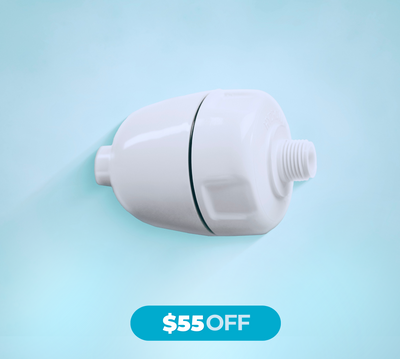Things You Should Avoid Pouring Down The Drain:
RSS
Analies Dyjak, M.A. & Christina Liu, B.S. | Science Team
Whenever we pour something down the drain or flush the toilet, it’s easy to think “out of sight out of mind.” However, the things we put down the drain can impact water quality in a big way. This article highlights exactly what not to pour or flush down the drain.
Where Does The “Stuff” That Goes Down The Drain Go?
All of the water flushed or washed down the drain goes through your city’s sewer system and into the wastewater treatment facility. The water that’s used to flush your toilet, take a shower, or wash your dishes all end up in the exact same spot. The wastewater treatment facility will treat the used water for a variety of pollutants. Once the water goes through the various processes, it’s released into local waterways to be recycled for a number of different purposes (including drinking water!).
Do Wastewater Treatment Plants Remove “Everything”?
It’s easy to assume that a wastewater treatment plant might remove absolutely everything from incoming wastewater. That isn’t entirely the case. Wastewater treatment plants do a really good job at removing larger solids, biological/bacterial contaminants, and sediment. They do not remove many chemicals, pharmaceuticals, hazardous materials, industrial waste, or pesticides. This puts a lot of pressure on drinking water treatment plants to carry a majority of the tap water purification. Some wastewater treatment plants are outdated and aren’t able to remove these types of pollutants, while others are not even required to do so. Click here for an in-depth video on how wastewater treatment plants actually work.
To help ease the burden on wastewater and drinking water treatment plants, here’s a list of things you should never pour or flush down the drain:
Pharmaceuticals: Old or unwanted prescription/over-the-counter medications should never be flushed down the toilet or sink. Water treatment plants are unable to remove most pharmaceuticals, which means that trace amounts end up in our tap water. Small amounts or levels below therapeutic doses are currently not a cause for concern but if people continue to dispose of medications down the drain, these levels of pharmaceuticals may accumulate. For guidance on how to properly dispose of pharmaceuticals, check out the FDA’s best practices for disposal of unused medicines.
Grease: Aside from the obvious reasons why you should never pour grease, oils, or fats down the drain, doing so can actually cause issues at a much larger scale. Whatever grease you pour down the drain congeals with everyone else's, and can form a mass in the sewer system. The mass can block other wastes from passing through, creating a major sewage blockage (like we saw in Detroit, MI). Check your city’s municipal utility company to see if they have a cooking oil collection program. If not, the best recommendation is to collect the used oil in a leakproof jar, seal it up, and throw it away in the trash.
Motor Oil: Never pour used motor oil or other automotive fluids (including antifreeze, solvents and gasoline) down a drain in your house or garage, into a storm drain, onto the soil, into a waterway, or in a manhole on a sidewalk. Used motor oil can contain toxic heavy metals such as zinc, lead, and cadmium that can contaminate drinking water. In fact, one quart of oil poured down a storm drain can contaminate one million gallons of water. One pint of oil can produce a slick of approximately one acre of water. When oil enters a body of water, a film develops on the surface that blocks out sunlight that plants and other organisms need to live. Please note that unlike cooking oil, you also cannot dispose of motor oil in the trash, and many cities will issue stiff fines for dumping toxic waste into landfills. Always bring used motor oil to local used oil collection centers.
Paint: Whether it’s latex, acrylic, or oil, paints can clog your pipes and potentially leach toxic compounds into the water. If you can, first try to see if the leftover paint can be reused. School drama clubs or community theaters will often be happy to take unused paint! If the paint can’t be reused and must be disposed of, avoid throwing it away. Bring paint to local household hazardous waste collection locations/events. Don’t clean brushes in the sink, but use rinse buckets, and let the paint residue settle overnight from the old rinse water before pouring the water down the sink, leaving the congealed and dried paint at the bottom of the bucket, where it can be peeled or scraped off and thrown away.
Important Takeaways:
Wastewater treatment plants are primarily designed to treat the biological materials in the water, but are NOT equipped to treat the water for chemicals such as pharmaceuticals, cooking oil, household grease, motor oil and other automotive fluids, paint, photographic chemicals and others. A good rule of thumb is, when in doubt, don’t pour it down the sink or into sewer or storm drains. Check with your local authorities for toxic waste disposal locations.
Other Articles We Think You Might Enjoy:Don't Drink or Cook With Water From The Hot Side of Your Faucet
6 Myths About Drinking Water
Why Home Water Filters Are Better For The Environment:


